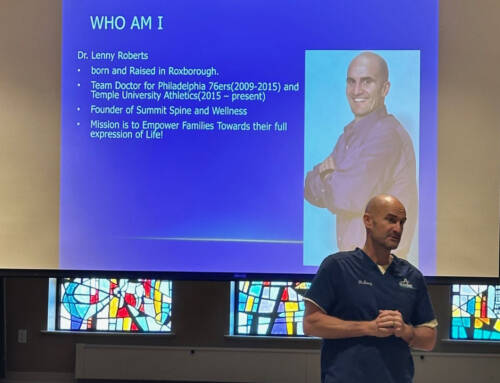
About the Author – This “Health Update” was written by John J. Mast, M.D., C.M.D., associate medical director, Masonic Village at Elizabethtown
Hypothyroidism is a common disease which can cause many common symptoms. It is called the great masquerader because it can mimic many other diseases. Despite its tricks, hypothyroidism can be easy to treat.
By various measures, from 7 to 20 percent of seniors may have some level of hypothyroidism; however, it can often be overlooked because its symptoms can be so common. Common symptoms include fatigue, weakness, constipation, dry skin, edema, cold intolerance and memory loss. Other symptoms may be weight gain, shortness of breath, sleepiness, slow heart rate, muscle cramps, pins and needles pain, decreased taste, hair loss, decreased hearing and tremor. Some with hypothyroidism; however, will have none of these symptoms.
What causes hypothyroidism?
Usually the thyroid gland just makes less and less thyroid hormone – this is called primary hypothyroidism. Medications such as amiodarone and lithium, or thyroid radiation or surgery can also cause hypothyroidism.
How is hypothyroidism diagnosed?
Your provider may order a blood test which can indicate if your thyroid is underactive. He or she will conduct follow-up tests every month initially and then every four to 12 months.
How is hypothyroidism treated?
Thyroid medications such as L-thyroxine are the standard replacement for most people. Since this medication is most reliably absorbed on an empty stomach, most people take it in the morning before breakfast. Others take it at bedtime or before supper on an empty stomach. Generic and brand name thyroid replacements are all effective for hypothyroidism.
Some medicines can block thyroid medicine, preventing your body from absorbing it. Iron, magnesium, zinc, calcium, multivitamins, fosamax (alendronate) and actonel (risedronate) all can decrease thyroid absorption. Acid blockers such as prilosec (omeprazole) and protonix (pantoprazole) can also reduce thyroid absorption. Ideally, these medicines and vitamins are not taken at the same time as the thyroid medicine, but can be taken at a different time.
Think you may have symptoms of hypothyroidism?
You aren’t alone since many people have these symptoms, and at times thyroid replacement can help treat them. Ask your provider to check your thyroid hormone at your next appointment.




